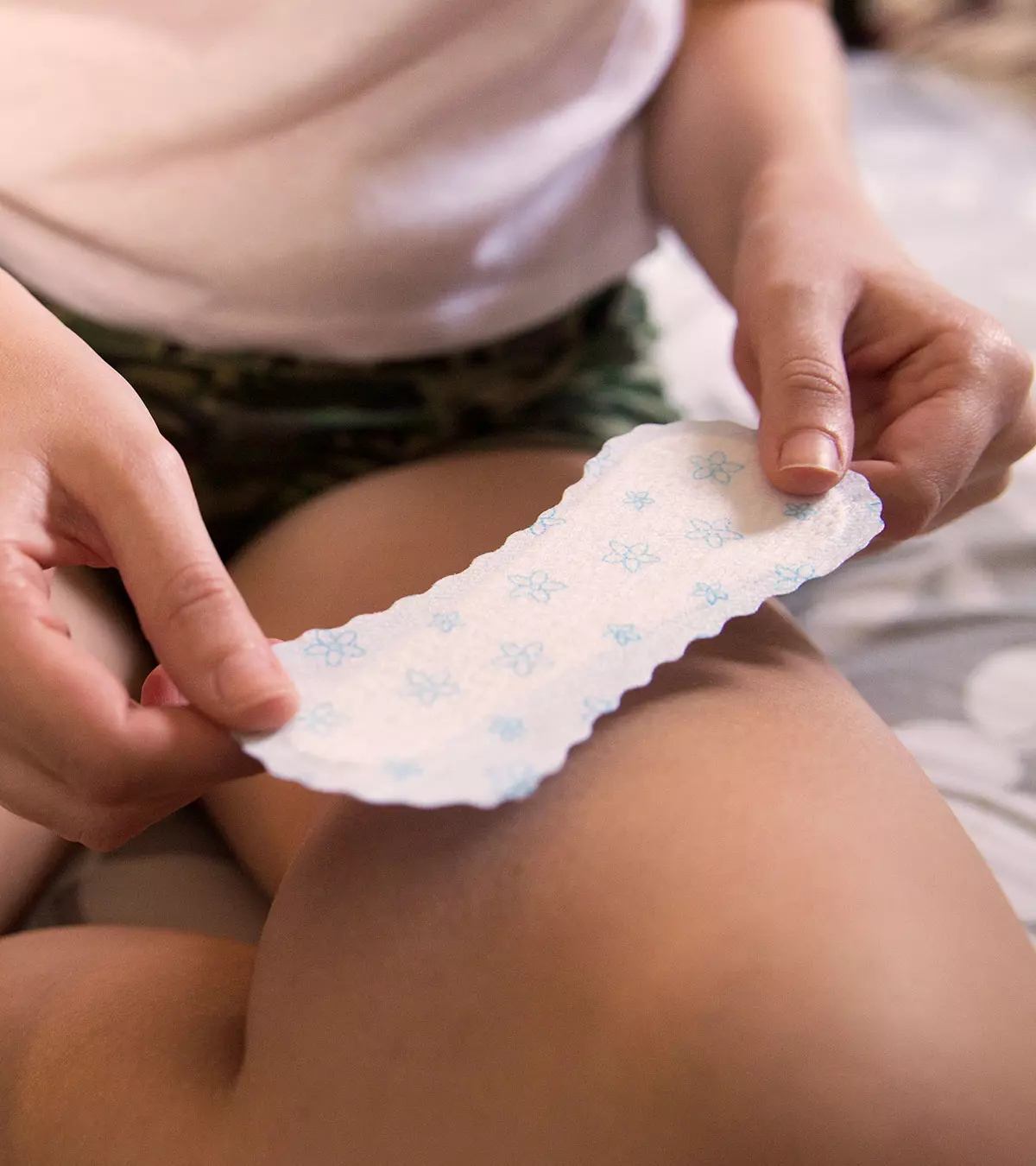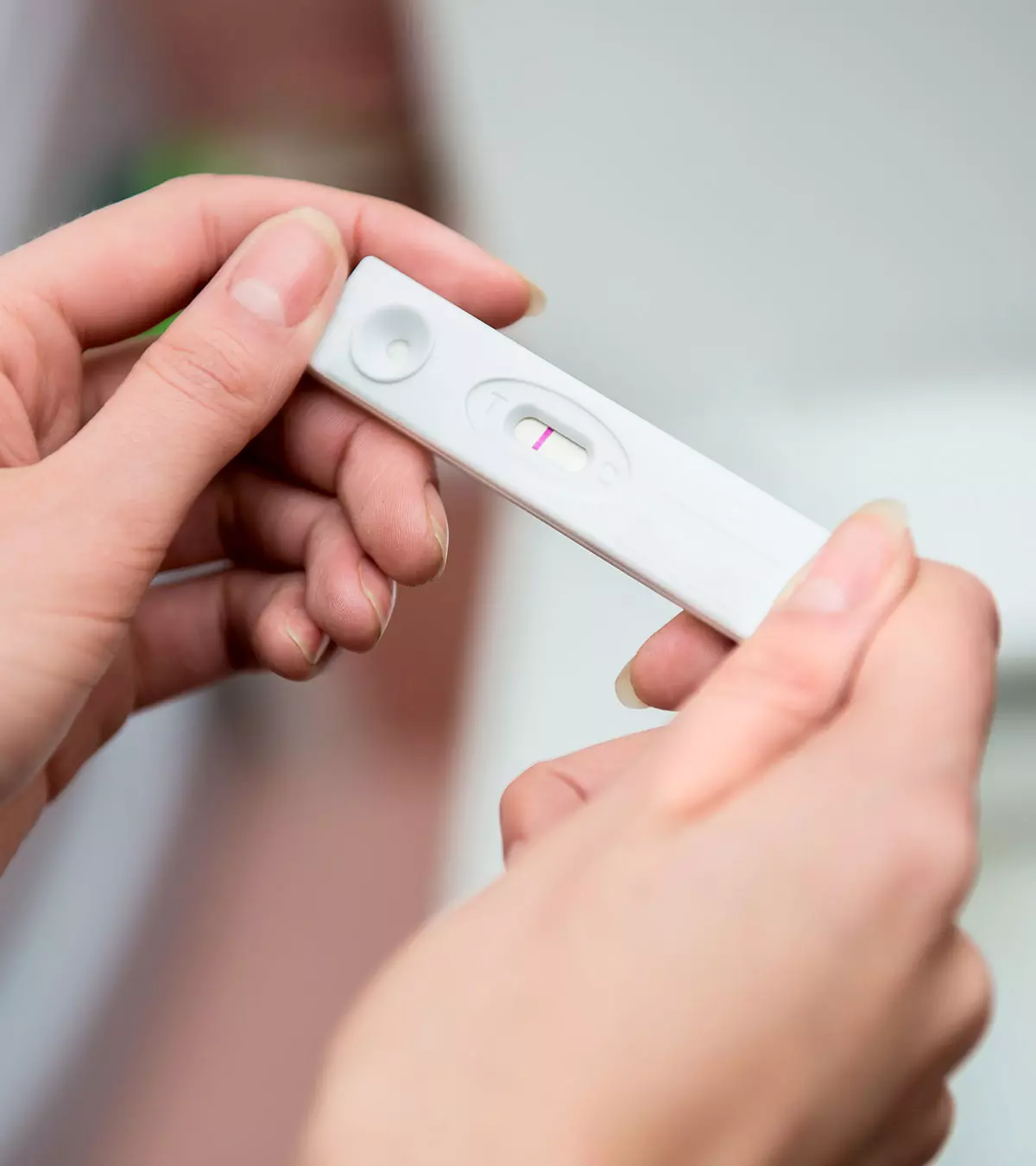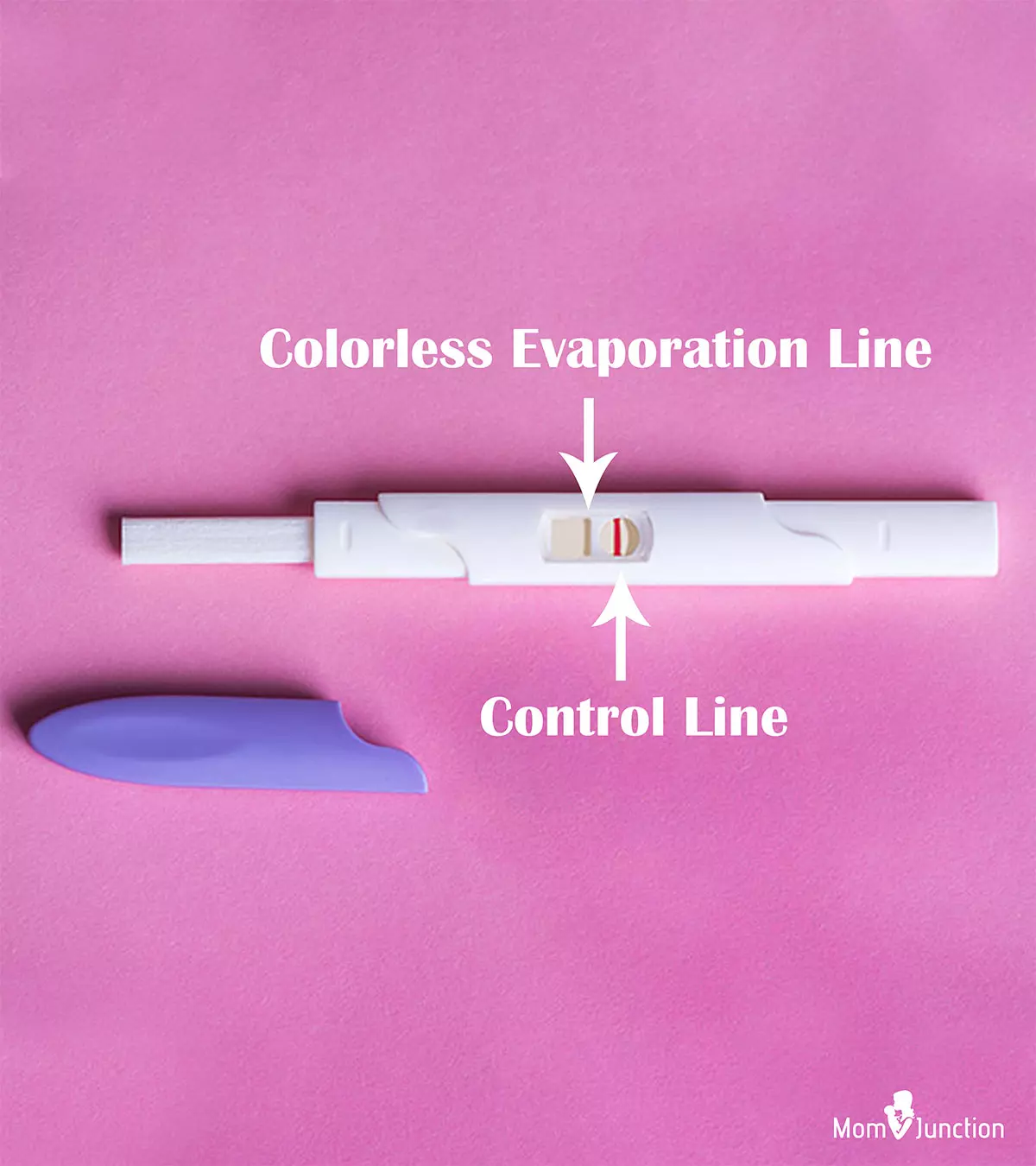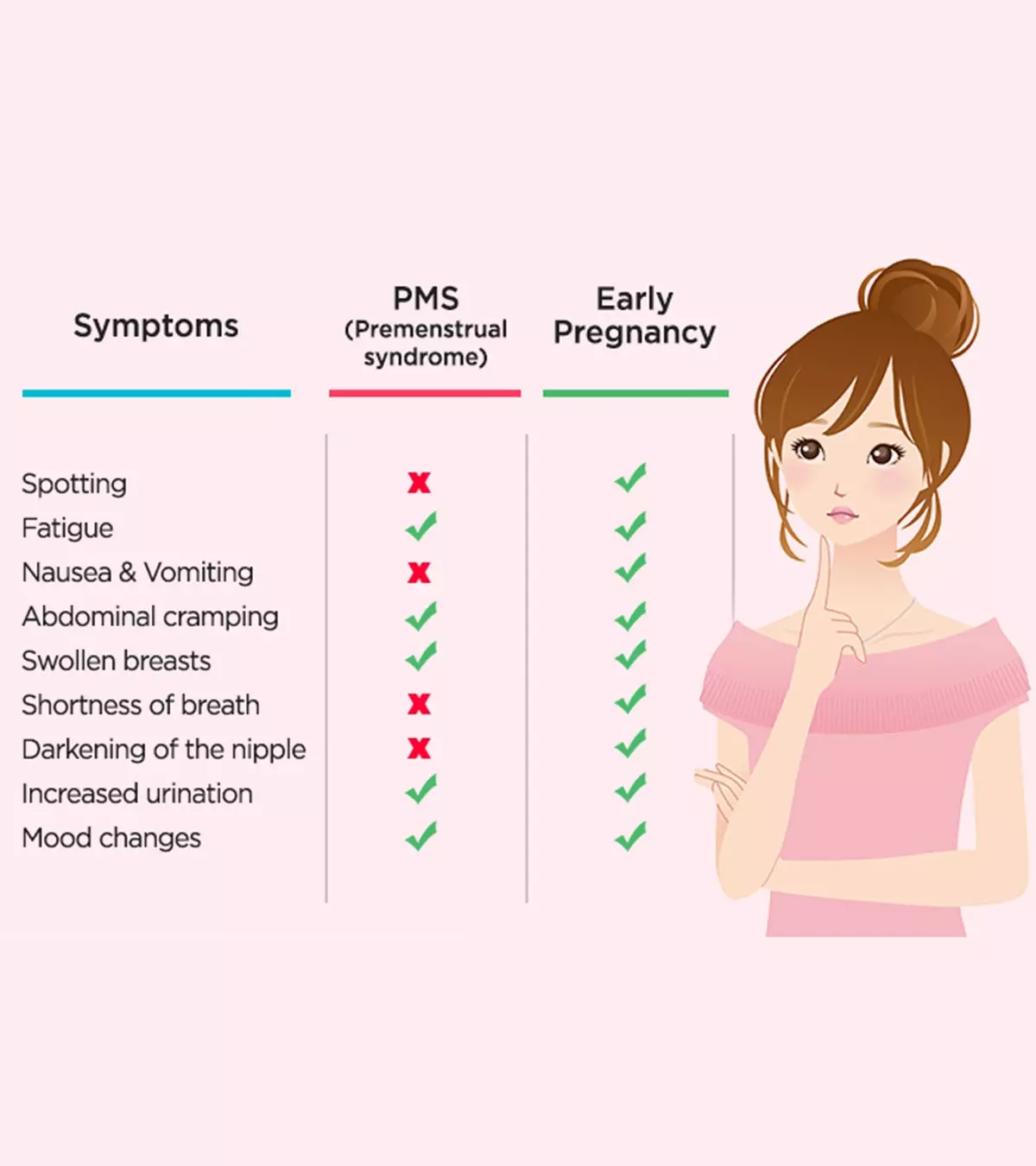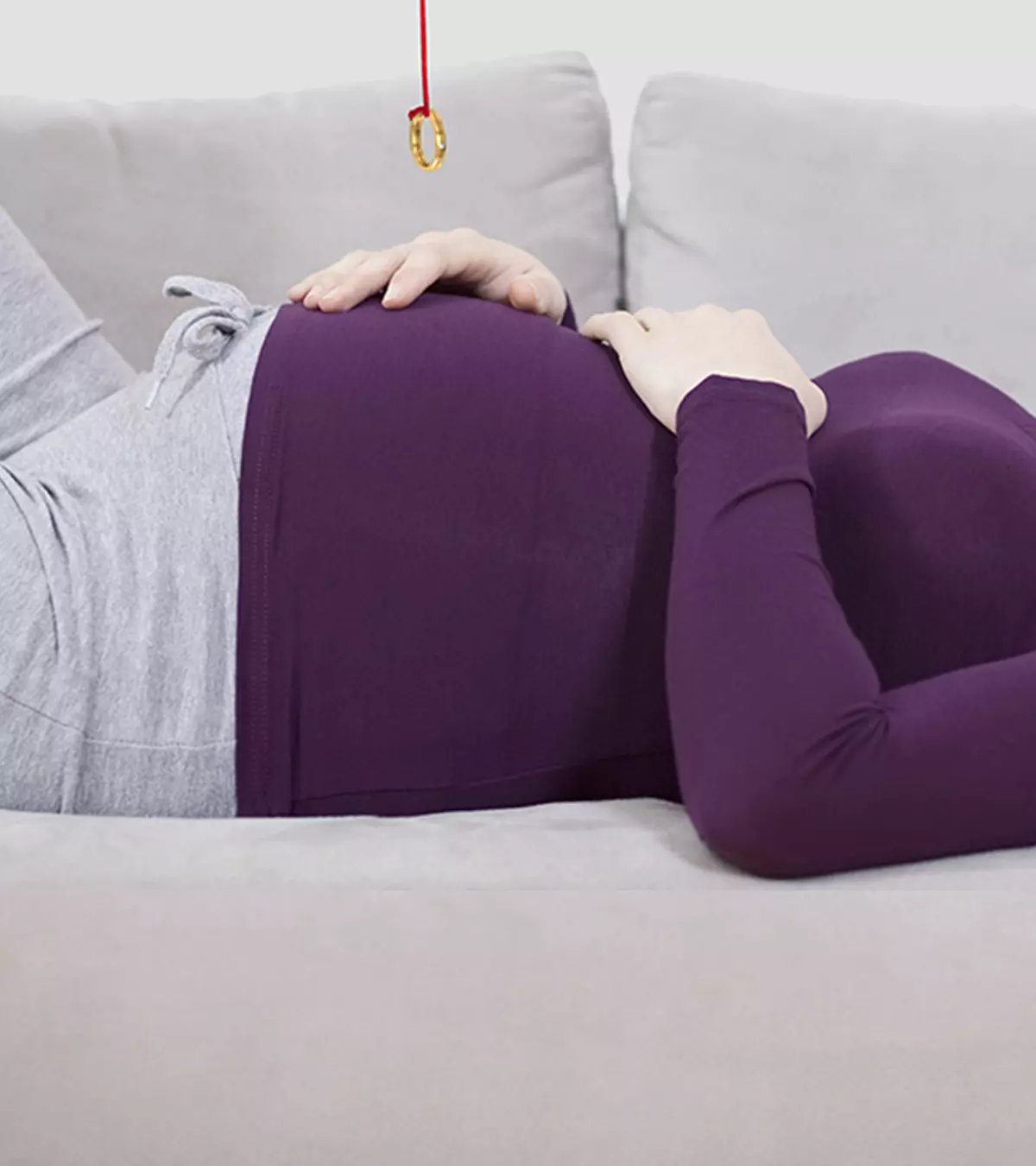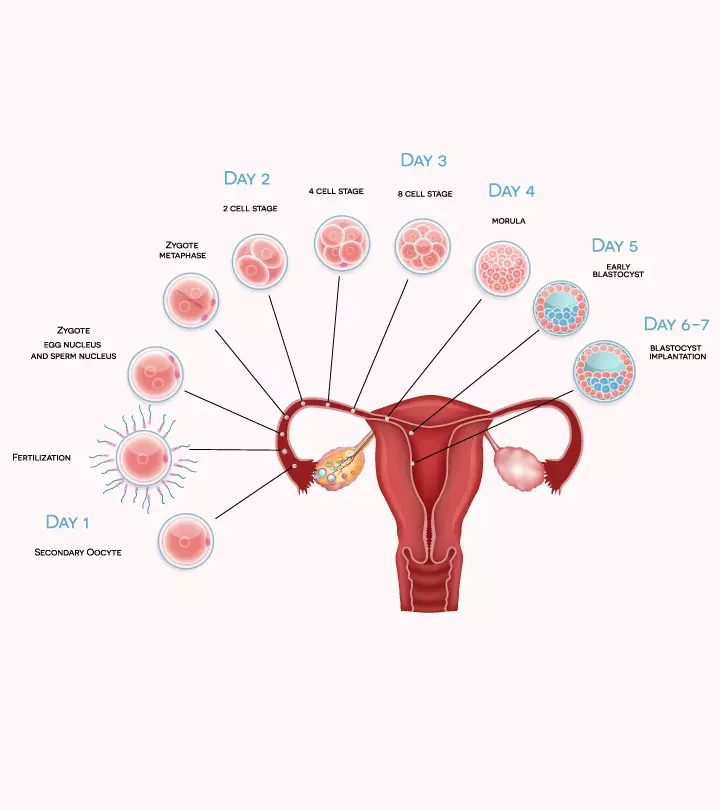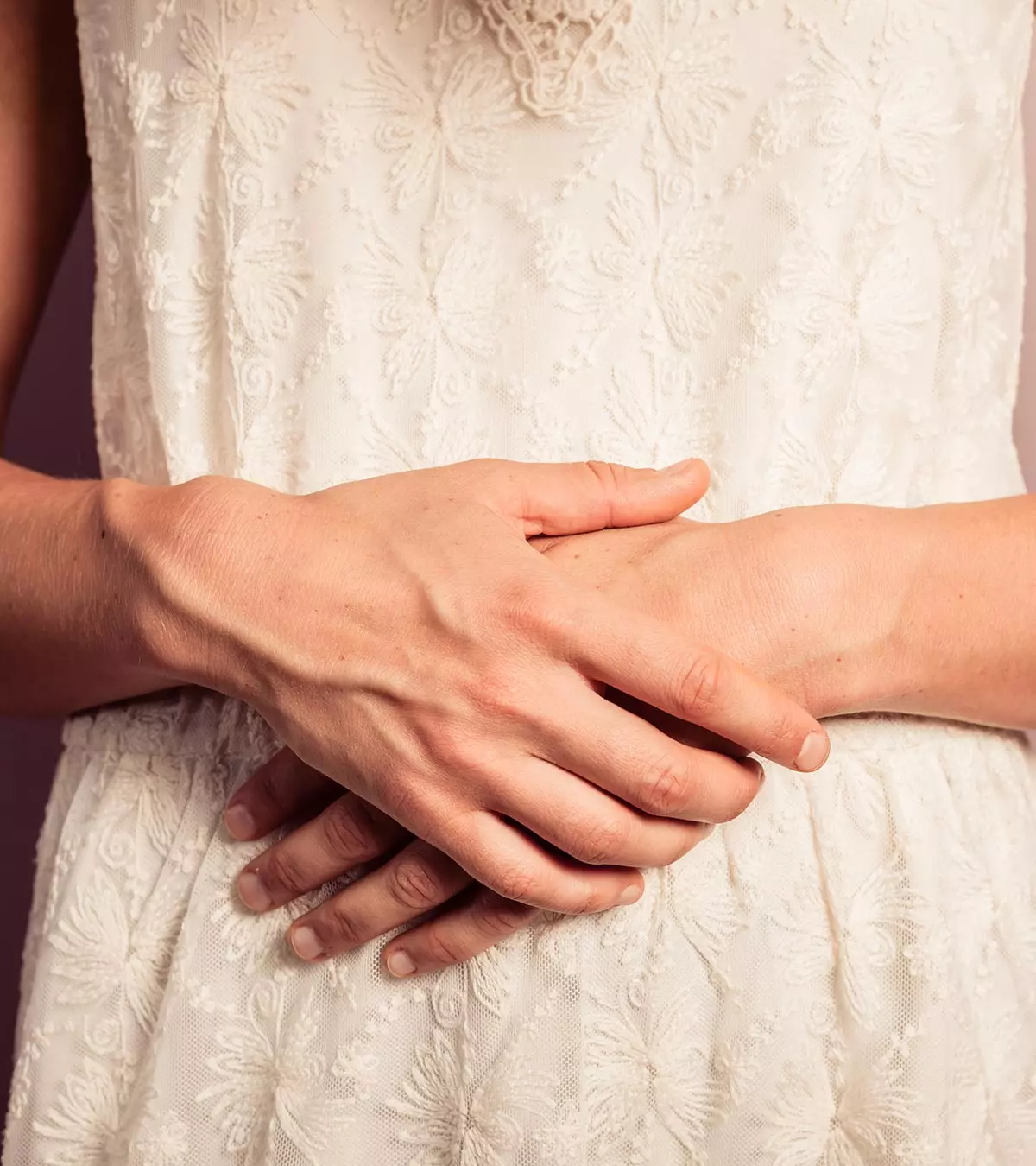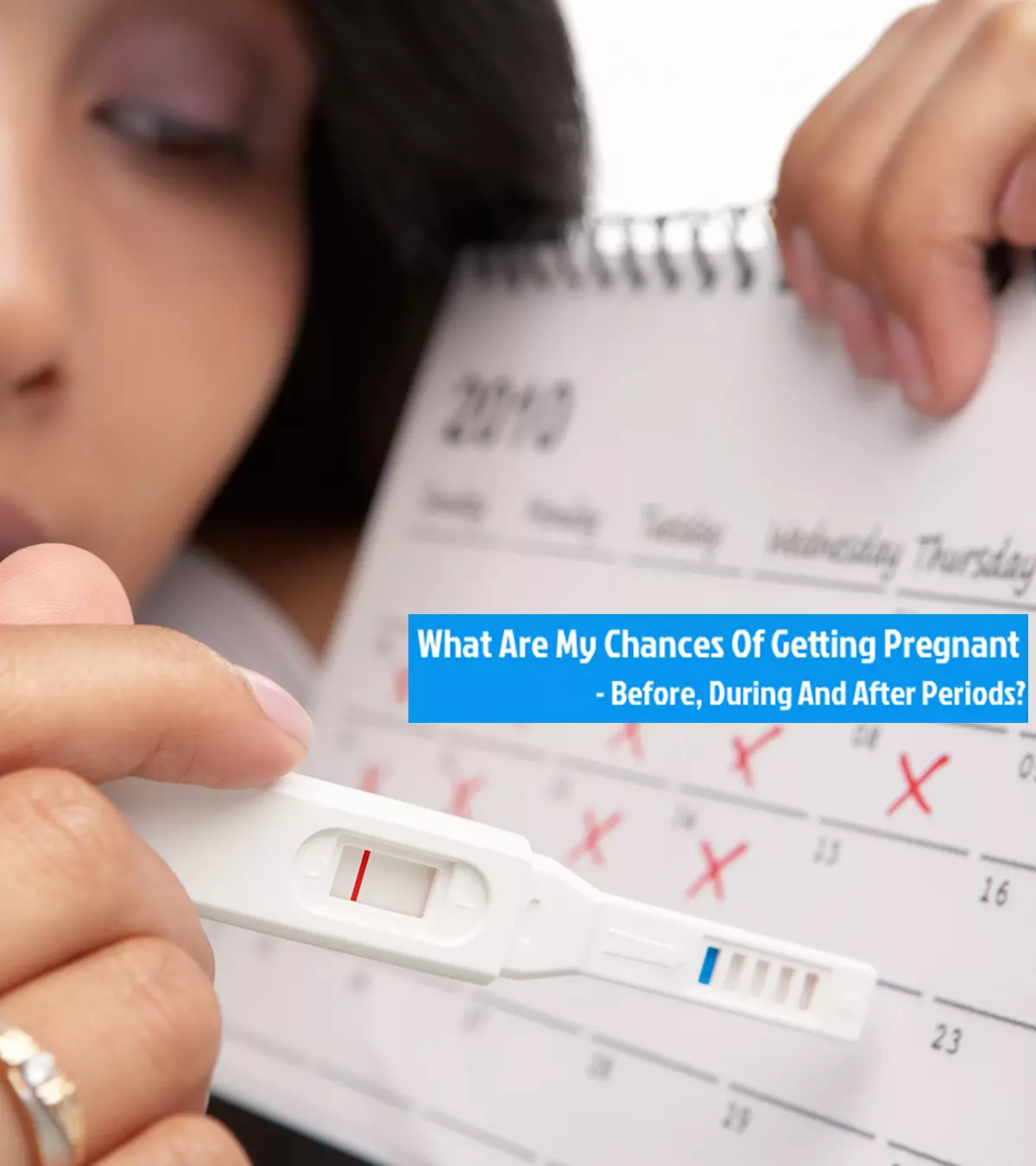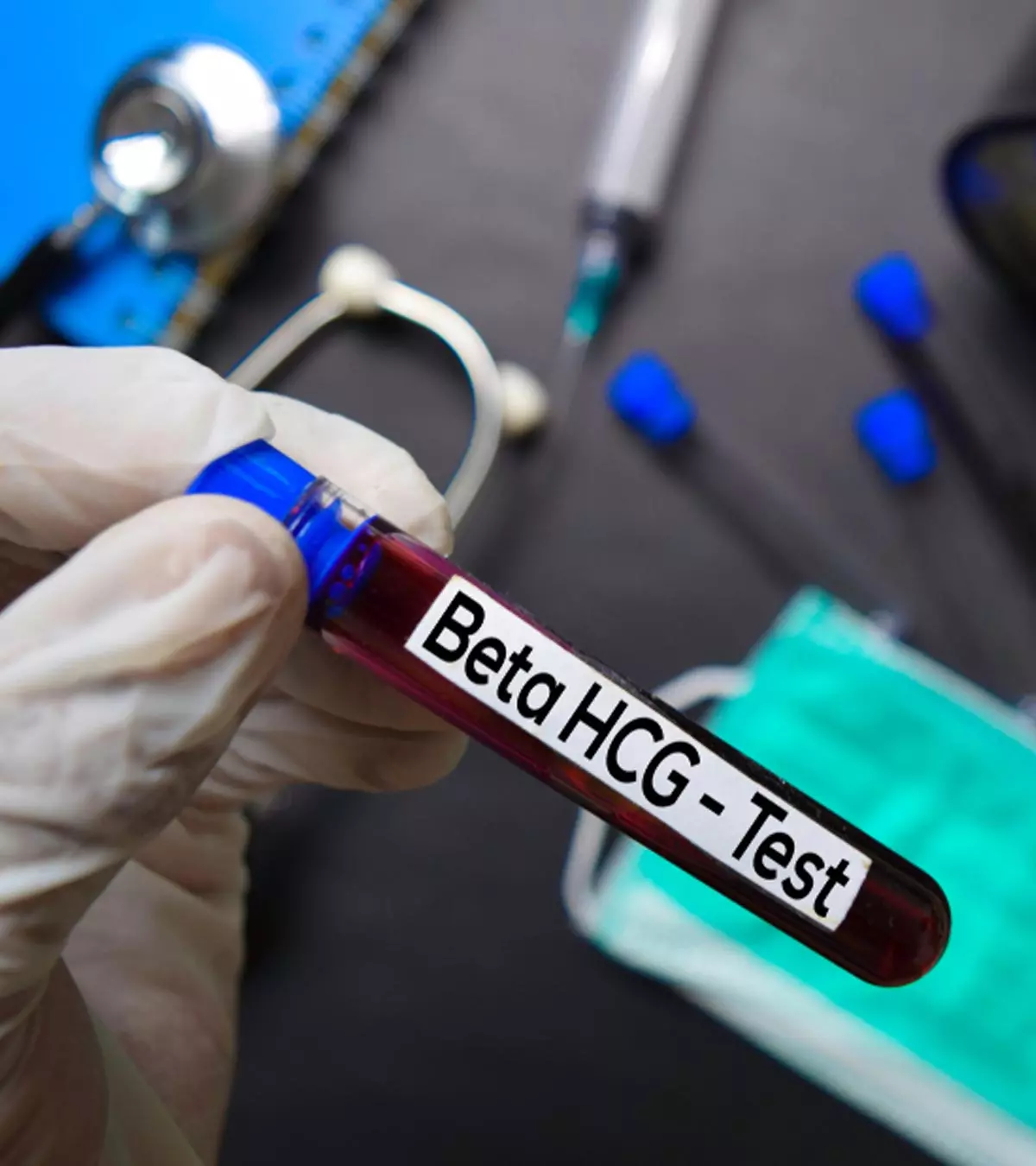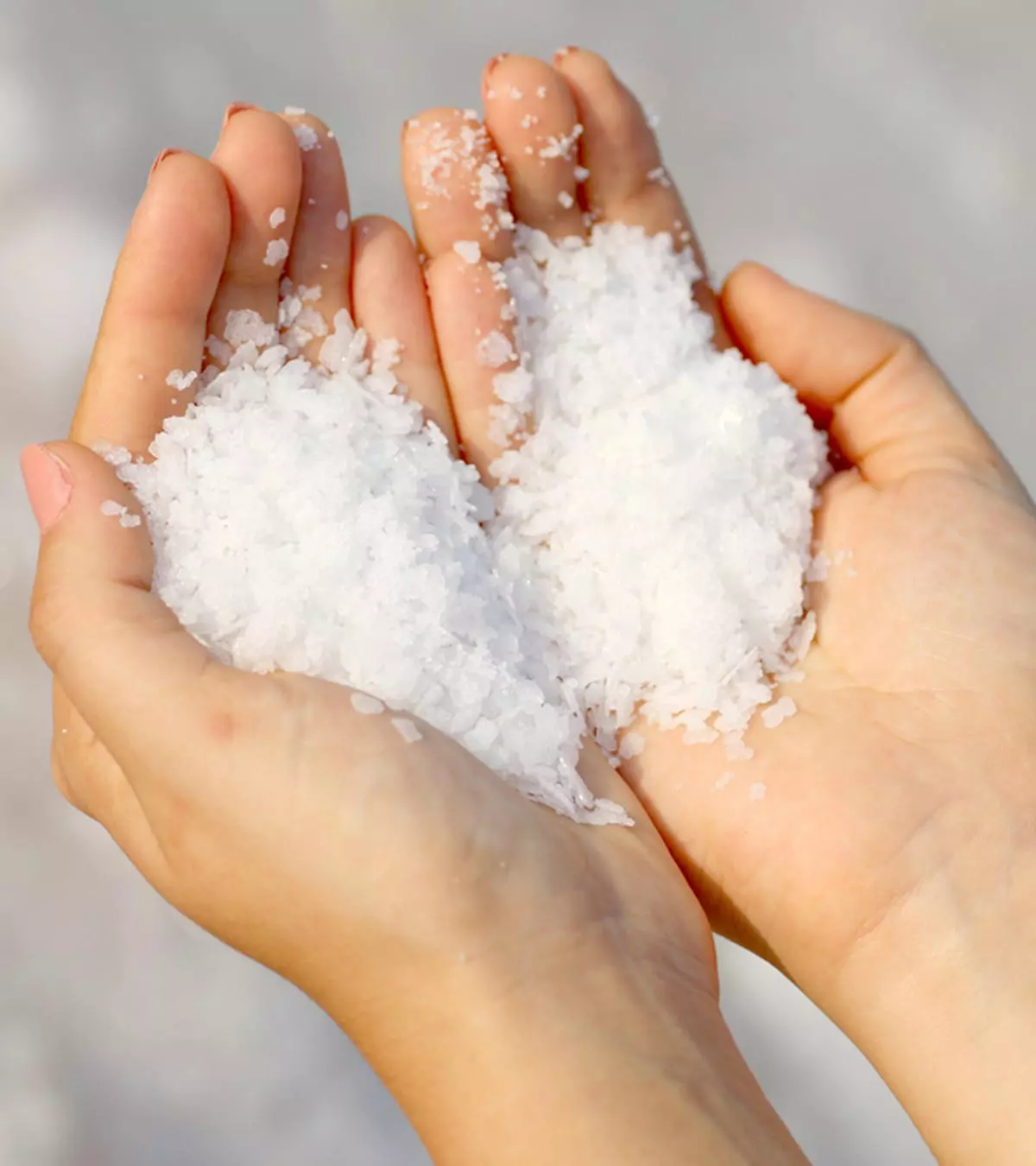
Image: Shutterstock

There are various homemade pregnancy tests, such as the salt pregnancy test, sugar pregnancy test, and baking soda pregnancy test, each offering different levels of accuracy. Several women consider the salt pregnancy test as a natural DIY method to determine whether they are pregnant. Medical specialists do not advocate it because it is not backed by scientific evidence, despite its popularity due to its ease of use.
Read this post to know how the salt pregnancy test works and whether it is accurate.
Key Pointers
- Salt pregnancy test is a DIY home pregnancy test that several women use to know if they are pregnant.
- The test involves pouring the urine over the salt. Proponents believe that the hCG in urine combines with the salt to give a curdled product, confirming pregnancy.
- However, the test lacks scientific evidence. Hence, medical specialists advise against its use to confirm pregnancy.
- Home pregnancy test kits and clinical pregnancy tests are the most accurate and reliable ways to confirm pregnancy.
How Is The Homemade Pregnancy Test With Salt Done?
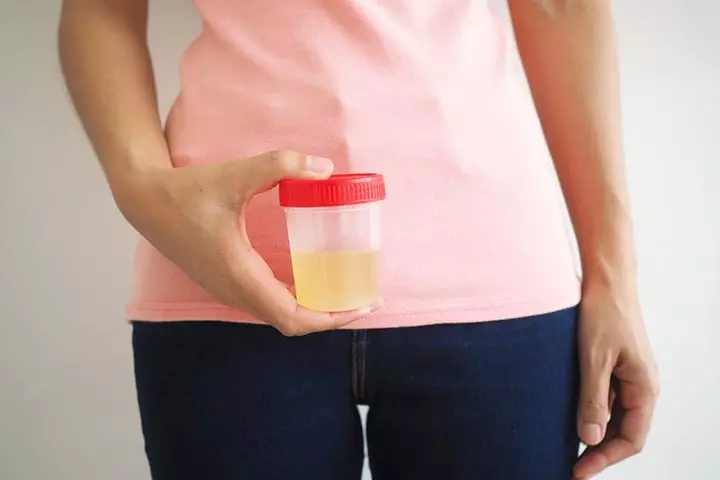
Image: Shutterstock
We have got you covered if you are looking for how to check pregnancy at home with salt. You need one or two tablespoons of common table salt, a sample of the first morning urine, and a small cup (preferably a transparent one).
- Put salt into a cup.
- Collect a small amount of urine in a separate container.
- Pour the urine over the salt and wait for any changes.
- If the mixture turns milky or cheesy, it could indicate you are pregnant.
How Is The Salt Pregnancy Test Said To Work?
Proponents of the test believe that hCG combines with salt to give a changed or curdled texture
. However, there are no scientific studies to explain how salt would react with hCG to cause a reaction.
How Accurate Is The Salt Pregnancy Test?
The salt test for pregnancy is not accurate or reliable, like any other DIY test for pregnancy. It has no evidence from studies or medical organizations, nor does any medical expert vouch for its accuracy.
There are only two possible outcomes, and there is likely to be a 50% chance that you could be right.
When Should You Take The Salt Pregnancy Test?
Most people believe that first-morning urine could give better results for the salt test since it contains the highest level of hCG hormone (1).
You need to understand that the salt test is just a theory. You may perform a pregnancy test at home using a pregnancy test kit or seek medical advice (for blood and urine tests) for confirmation of pregnancy.
How To Read Salt Pregnancy Test Results?
According to popular belief, allowing the salt–urine mixture to sit for some time might help in delivering the results.
- A positive salt test result shows the mixture as milky or cheesy. In some, the urine may turn foamy.
- A negative result shows no changes—the mixture remains intact with the urine and salt.
Holly and Jess, two YouTube vloggers, share their experience trying out a salt pregnancy test together. Jess is pregnant, while her friend Holly is not, allowing us to clearly observe the accuracy of this test. Jess says, “We have control, I’m not pregnant, she’s (Holly, her friend) pregnant. So, we can see if some of these home pregnancy tests would work… Okay, so the salt test folklore says that if you are pregnant, it will start looking milky or cheesy, which sounds disgusting. Yours should just look salty. Add just a few drops (urine) or how much you probably need. I’m gonna use my tablespoon. It says to start pouring; look, I’m gonna put two tablespoons in. Yours still looks kind of milky. Mine is way milkier than yours. Let me stir yours like I did the last time. Mine totally looks milkier than yours. I think the salt test is a winner, might work (i).”
Alternative Options To Test For Pregnancy
You may consider over-the-counter pregnancy test kits available online or in drug stores. Your doctor can also check for pregnancy by testing your blood and urine samples or via ultrasound.
- Home pregnancy test kits are affordable, reliable, and provide results in a few minutes. They detect the presence of the hCG hormone in the urine (2). Sometimes, they might result in false-positive or false-negative test results. To get an accurate reading, you may consider taking the urine pregnancy test not before one week after the missed period. Also, take the test using your first urine of the day as it has the highest levels of pregnancy hormones.
 Quick fact
Quick fact
Image: Shutterstock
- Clinical pregnancy tests involve a blood test and urine test, or either of them for pregnancy detection. The urine testing method works similar to the home pregnancy test, but the sample is sent to the laboratory for testing. Blood tests are again of two kinds—qualitative (checks the presence of pregnancy hormone) and quantitative (checks the amount of hCG hormone) (3).
When To See A Doctor?

Image: Shutterstock
If you suspect you are pregnant, it is better to consult a doctor. You may start experiencing early pregnancy symptoms such as abdominal pain, fatigue, food cravings or aversions, morning sickness, frequent urination, darkening of the areola, and more that could signal a pregnancy (4).
Also see a doctor if you miss your periods for two consecutive cycles and test negative in a home pregnancy test.
 Did you know?
Did you know?Does The Salt Test Predict The Gender Of The Baby?
According to popular Romanian folklore, sprinkling salt over a pregnant woman without her knowledge could indicate the baby’s sex. If the woman abruptly rubs her nose, it is a girl; and if the woman rubs her lower lip, it is a boy. Remember that this homemade pregnancy test has no scientific backing.
Frequently Asked Questions
1. Can women with previous pregnancy complications try the salt pregnancy test?
Using a salt pregnancy test to confirm pregnancy is not recommended, regardless of a woman’s medical history. These tests lack validation and may offer misleading results.
2. Can a salt pregnancy test detect a miscarriage or an ectopic pregnancy?
No, the salt pregnancy test is not a dependable method for detecting a miscarriage or ectopic pregnancy. If you suspect either, it’s crucial to seek medical attention promptly.
3. Can a salt pregnancy test be used for gender prediction?
No, a salt pregnancy test cannot predict gender. It lacks reliability and accuracy. Consult a healthcare professional for gender determination instead of relying on this method.
A home-based salt pregnancy test, in which the salt is believed to mix with hCG in urine to produce an altered or curdled texture, could be an inexpensive approach to identify pregnancy; however, there is no scientific evidence to support it. While the test can be done for fun, as the test only requires two teaspoons of common table salt, a morning urine sample, and a small cup, the results should not be trusted. Instead, purchase a home pregnancy test kit and confirm your pregnancy with your doctor.
Infographic: Are There Other Home Tests For Pregnancy?
Similar to the salt pregnancy test, other tests use simple raw materials readily available at home. These tests are cost-effective but are not scientifically accurate, and you must not base your decisions on the results of these tests. The infographic below mentions some DIY pregnancy tests you may try to quench your curiosity.
Some thing wrong with infographic shortcode. please verify shortcode syntax
Personal Experience: Source
MomJunction articles include first-hand experiences to provide you with better insights through real-life narratives. Here are the sources of personal accounts referenced in this article.
i. Live pregnancy test! – Do DIY pregnancy tests actually work??;https://www.youtube.com/watch?v=SjV2IOwRO8o&feature=youtu.be
References
1. Amber Bondurant; When is the best time to take pregnancy test? The Ohio State University Wexner Medical Center (2019).
2. Signs of Pregnancy/The Pregnancy Test; The Children’s Hospital of Philadelphia
3. Pregnancy; U.S. Department of Health and Human Services – National Institutes of Health
4. Signs of Pregnancy; Beaumont Health
5. No Scientific Basis For The Claim That Urine’s Reaction To Salt Can Confirm Pregnancy; Science Feedback
6. Late Period, Negative Pregnancy Test:; Possible Causes; Huntsville Pregnancy Resource Center
Illustration: Homemade Pregnancy Test With Salt: Are The Results Accurate?

Image: Dalle E/MomJunction Design Team
Community Experiences
Join the conversation and become a part of our nurturing community! Share your stories, experiences, and insights to connect with fellow parents.
Read full bio of Kay Lakka
Read full bio of Rebecca Malachi
Read full bio of Dr. Ritika Shah
Read full bio of Reshmi Das






